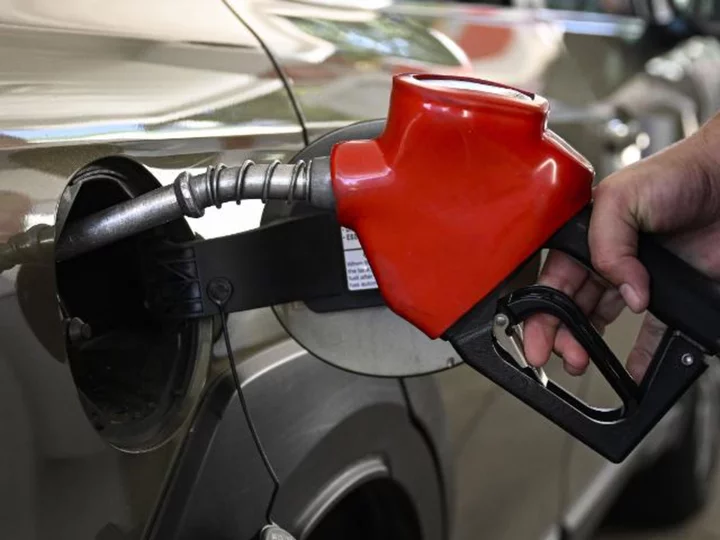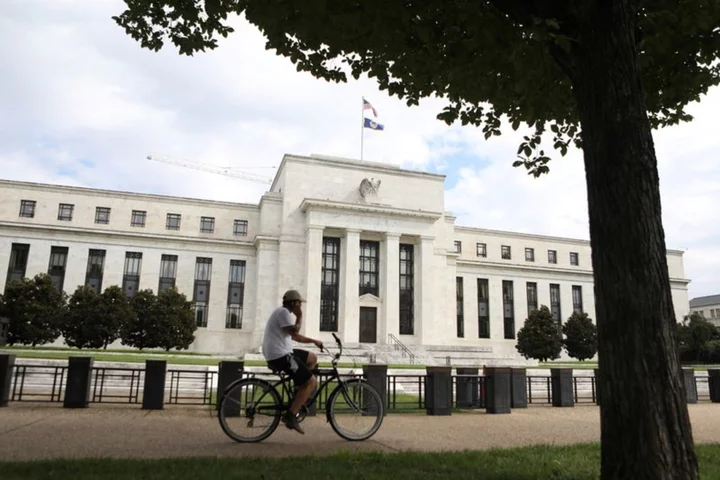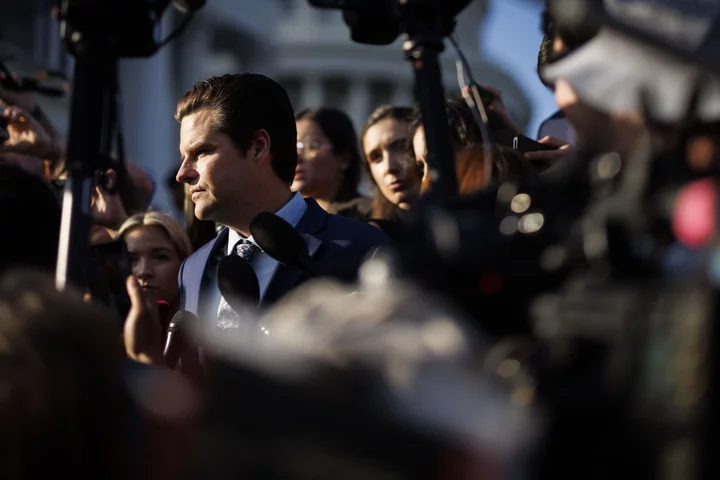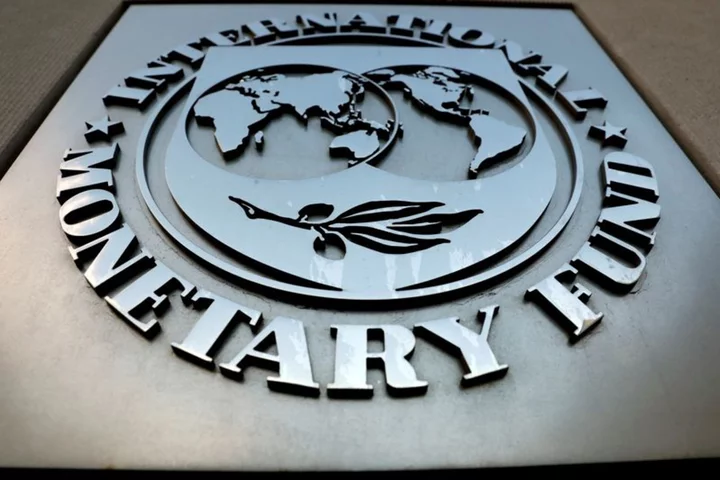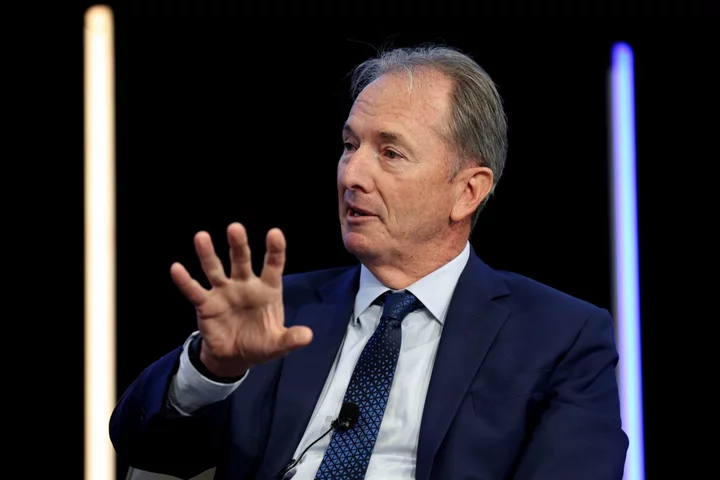Falling leaves typically coincide with falling gas prices as the summer driving season comes to a close and demand at the pump wanes. Instead, gasoline prices are getting more expensive and are just pennies away from their highest level so far this year.
That's because aggressive oil supply cuts in Saudi Arabia and Russia and deadly flooding in Libya have sent crude prices on a tear. Oil prices hit a 10-month high on Friday and are on pace to hit their largest quarterly increase since Russia first invaded Ukraine in the beginning of 2022.
Increasing oil prices are a bad omen on Wall Street — they mean higher inflation and introduce the possibility of more economy-crushing interest rate hikes by the Federal Reserve. More pain at the pump also means less consumer spending elsewhere and a heightened possibility of recession.
There's already a lot to fret about this autumn: Auto workers are on strike, the federal government could face another shutdown, China's economy is still distressingly subdued and geopolitical tensions are on the rise.
Are rising oil prices another item to add to the list?
David Kelly, chief global strategist at JPMorgan Asset Management and self-declared worrywart, doesn't think so.
Before the Bell spoke with Kelly about why Americans don't have to fear the pump, at least right now.
This interview has been slightly edited for length and clarity.
How high do you think oil prices will go?
David Kelly: If there's some other shock, some big storm in the Gulf of Mexico, it could spike higher. But as we look at this, we don't think the trend over the next year or two is going to be higher oil prices.
There are a few reasons for this.
One thing we need to remember is that the price of everything has gone up, and all of the input costs of producing oil have increased. Sure we're at $90 a barrel right now — but if you measure by today's dollars, we actually peaked at something like $184 per barrel back in 2008. When you adjust for inflation, oil isn't that high right now.
Another thing is that the US has whittled away its Strategic Petroleum Reserve, we've reduced that a lot. There was an inventory overhang we could use to try to balance the market, and it's not as big as it was.
Going forward, US production is growing very rapidly — we're currently producing more crude oil than either Russia or Saudi Arabia. This is going to be a record year for US liquid fuel production, and next year is going to be even stronger.
The global economy is growing slowly, and that's going to limit demand growth for fossil fuel energy. And frankly, the green energy transition is also limiting the growth in demand.
So when I look at the supply side I think the US and other non-OPEC members will help, and when I look at the demand side, I don't see a lot of economic growth or demand for fossil fuels. So I don't expect economic trends to push prices much higher, although of course some shock could.
Why are oil prices so connected to recession?
Expensive oil has a very nasty triple effect of pushing up inflation and sometimes forcing a tighter monetary policy at the very time that it's squeezing the ability of consumers to spend elsewhere.
You saw that most obviously in the 1970s ... when high gasoline prices meant people had less money to spend on other stuff, and meanwhile, the Federal Reserve pushed rates up too high to fight inflation. That's why oil caused a recession in 1974-1975 and caused double barreled recessions in 1980 and 1982. The Great Financial Crisis in 2008 was not about oil, but consumers were in a weakened position going into it because of all the money they were spending on gasoline. These are all reasons why Americans have come to fear a spike at the gas pump.
What do elevated oil prices mean for inflation and future rate hikes by the Federal Reserve?
I certainly hope the Federal Reserve doesn't react by raising interest rates one more time. We don't think they're going to raise in September, and the futures market is saying there's a 50/50 chance that they raise one more time in November.
Economists and the rest of the world talk about inflation differently: Economists talk about inflation as being the rate of change in prices, and consumers think that you've got inflation when prices are high. So for inflation to go away you don't need the price of gasoline to fall, you just need it to stop rising. I think that we are going to see continued high prices for a lot of stuff, including gasoline, but I don't think we're gonna see an acceleration in prices.
We believe that inflation will be below the Fed's 2% target by the fourth quarter of next year. The Fed measures inflation year-over-year, so the fact that we're having a spike in gasoline prices right now makes it more likely that by next year price growth will be below 2%.
We've been on this roller coaster, but the thing about a roller coaster is that you get off where you got on, no matter how bumpy the ride was.
What should investors do in the meantime?
People should continue to look for opportunities to invest in the energy transition. The bigger point isn't the short term price of oil, it's the fact that the people who are controlling it — the Saudis and Russians — aren't particularly friendly to the United States right now. Even though we are a net exporter of oil, we're still affected by their ability to influence the market in ways that don't help us. I think this recent oil spike only confirms the fact that we need to invest in something other than fossil fuels.
If the Federal Reserve does raise rates one more time, I think it does increase the risk of recession. So you want to make sure that you're positioned a little bit more defensively because of the danger that higher gasoline prices tend to increase the risk of recession.
UAW strike puts the four-day workweek back in focus
When the United Auto Workers called a strike last week against General Motors, Ford and Stellantis, one of their demands focused on an idea circulating on the periphery of labor reform circles.
In addition to calling for a 36% pay raise and increased job security, union members want a 32-hour, four-day workweek with no pay cuts, reports my colleague Eva Rothenberg.
Proposals to shorten the workweek have gained traction in recent years, with the flexibility of pandemic-era remote work fueling many of these calls. The accelerating use of artificial intelligence in the workplace has also pushed some workers to question the necessity of a 40-hour week.
Sen. Bernie Sanders has long been a vocal proponent of a shortened workweek.
"We are looking at an explosion in this country of artificial intelligence and robotics. And that means that the average worker is going to be much more productive," the Vermont Independent told CNN's Jake Tapper on Sunday. "The question as a nation that we have to ask ourselves is: Who is going to benefit from this productivity? We should begin a serious discussion — and the UAW is doing that — about substantially lowering the workweek."
Get ready for a spike in marriage proposals
The pandemic dented sales of engagement rings as relationships faltered — or never even blossomed in the first place — as people stayed inside or avoided socializing outside of the immediate family says Signet Jewelers, the largest jewelry company in the United States.
This trend then created an "engagement gap" since couples get engaged, on average, about 3.25 years after they begin dating, according to Signet's proprietary data.
But with the return of many pre-pandemic lifestyles, including dating, Signet (owner of Zales, Jared, Kay Jewelers, Blue Nile and Diamonds Direct) said the lull in proposals is expected to bottom out this year. That means engagements will likely rebound starting in early 2024, reports my colleague Parija Kavilanz.
About 2.8 million couples, on average, get engaged every year in the United States, said Signet CEO Virginia Drosos during a company presentation at the Goldman Sachs Global Retailing Conference on Wednesday. Last year, the number slipped to 2.5 million. She said it will continue to head lower to level out at 2.1 to 2.2 million in 2023 before climbing back up and fully rebounding over the next three years.
In 2024, Signet expects engagements will reach 2.4 to 2.5 million. That rebound is crucial to the company since bridal jewelry accounts for 50% of its overall merchandise sales.

